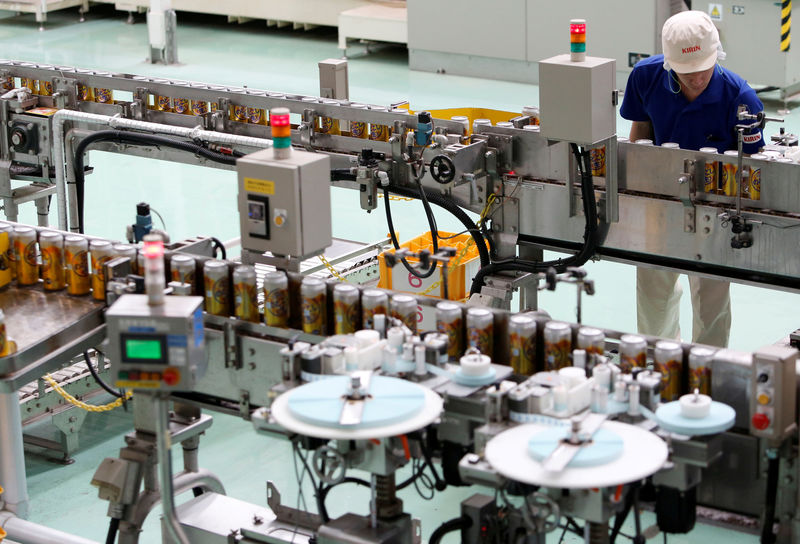TOKYO (Reuters) - Japanese manufacturing activity expanded at a solid clip in August as domestic and export orders picked up, a private survey showed on Friday, suggesting the economy will continue to grow at a healthy though possibly more modest pace.
The Markit/Nikkei Japan Final Manufacturing Purchasing Managers Index (PMI) inched up to 52.2 in August on a seasonally adjusted basis, less than a flash reading of 52.8 but just above a final 52.1 in July.
The index remained above the 50 threshold that separates expansion from contraction for the 12th consecutive month.
Japan's economy expanded by a much stronger-than-expected annualized rate of 4.0 percent in April-June, the fastest in more than two years.
But signs of softening in June and July, particularly for export orders, had raised concerns that global demand may be faltering after a strong start to the year.
The latest survey showed orders picking up again in August, though the increase was modest and not as strong as the preliminary reading had suggested.
The final index for new orders was 51.9, well below the preliminary index of 52.7 and only slightly higher than a final 51.8 in July.
The index for new export orders was also revised down to 51.3 from a flash reading of 52.2. That compares with a final 50.9 in the previous month.
"(The) survey showed growth moving broadly sideways, maintaining the recent positive trend of improvement in the health of the manufacturing sector," said Paul Smith, senior economist at IHS Markit, which compiles the survey.
Input prices continued to rise sharply though only 4 percent of the companies surveyed said they were able to pass on some of the increase to consumers, a further setback for the Bank of Japan's efforts to reach its elusive 2 percent inflation target. ]
The final PMI data come one day after government data showed industrial output fell more than expected in July as manufacturers curbed output of electrical machinery.

Manufacturers said they expected output to rise in August and fall in September, suggesting factory activity is losing a little momentum after faster gains earlier this year.